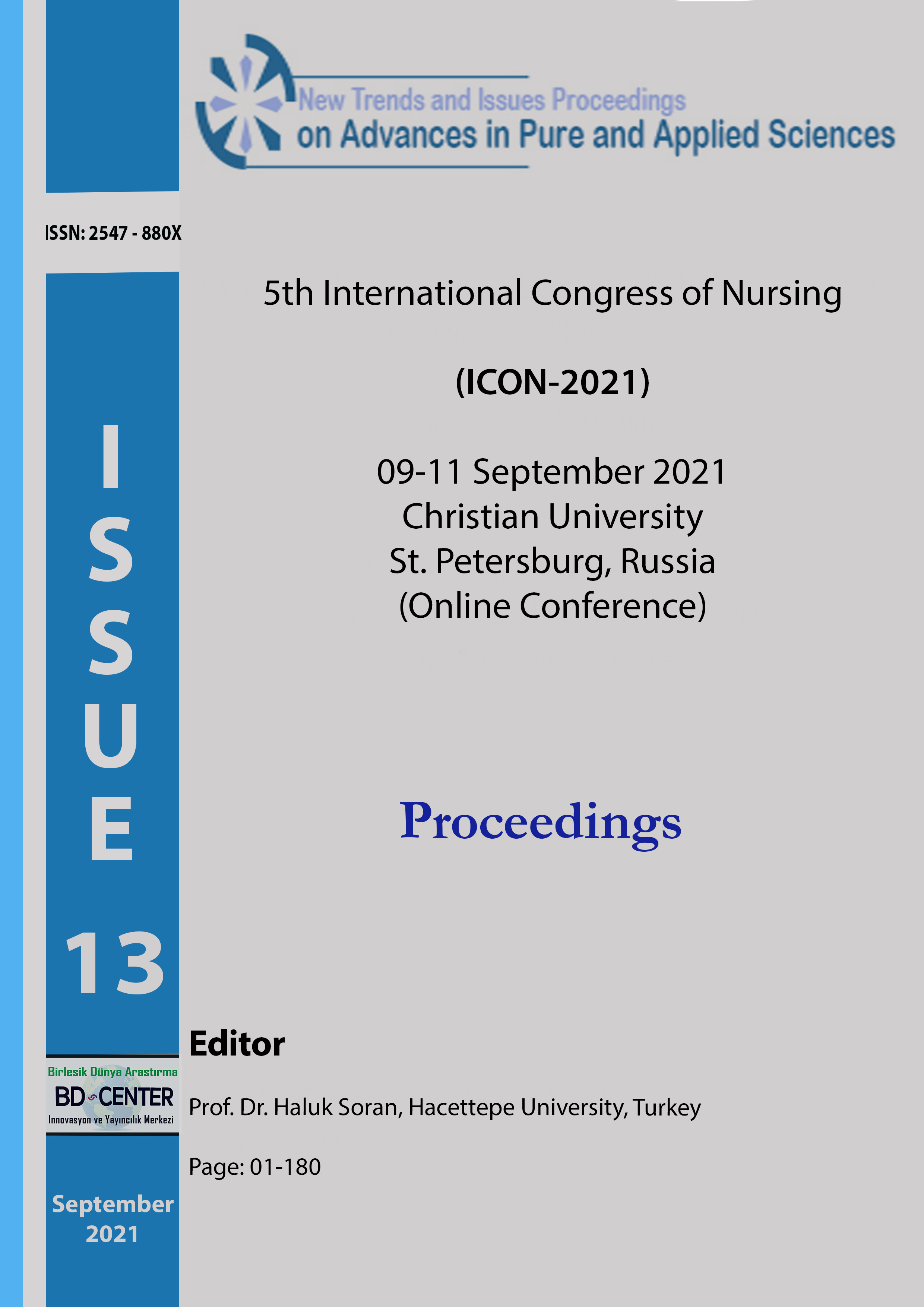The effects of nursing students’ beliefs towards obese individuals on their stigmatisation tendencies
Main Article Content
Abstract
It is very important to provide good quality and equal care to obese individuals without judging, stigmatisation and discrimination. The aim of this study was to determine the effects of nursing students’ beliefs towards obese individuals on their stigmatisation tendencies. This descriptive and correlational study was conducted between 05.06.2021 and 20.06.2021 with the participation of 232 students who were studying at Ondokuz Mayis University, Faculty of Health Sciences, Department of Nursing and who were willing to participate in the study. The data in the study were collected by using a survey form consisting of 25 questions to find out about the sociodemographic characteristics of the students and their attitudes towards obese individuals and Beliefs about Obese Persons Scale (BAOP) and Stigma Scale. Normality distribution of the data was examined with Kolmogorov–Smirnov test. Kruskal–Wallis and Mann–Whitney U test were used in the comparison of data which were not normally distributed. The correlation between the scales and sub-dimensions was examined with Spearman’s correlation analysis. It was found that 75.4% of the students in the study were female and 24.6% were male, 82.8% had grown up in a nuclear family, 36.6% had a democratic family structure, 60.8% chose the profession of nursing willingly, 79.7% had a body mass index within the normal range, 69.4% did not have a history of obesity in family members, 67.7% had overweight individuals in their immediate circle, 74.6% were not exposed to stigmatisation and discriminative attitudes due to their body weight; 97.8% were not biased against obese individuals, 78.9% stated that they wanted to provide care to obese individuals and mean age was found as 20.72 ± 1.68. The mean BAOP score was found as 23.4 ± 1.02, while the mean Stigma Scale score was found as 44.8 ± 11.7. The BAOP Scale scores and mean Stigma Scale scores were found to differ in terms of some sociodemographic characteristics of students (p < 0.05). In line with the data obtained from the scale, it was found that students’ beliefs about obese individuals were not negative and they had low level of stigmatisation tendency. It is recommended to increase social awareness about the increase in obesity prevalence, which has become a global problem, and to prevent the tendency for stigmatisation and discrimination.
Keywords: Nursing, nursing student, obesity, belief, stigmatisation.
Downloads
Article Details

This work is licensed under a Creative Commons Attribution 4.0 International License.
Authors who publish with this journal agree to the following terms:- Authors retain copyright and grant the journal right of first publication with the work simultaneously licensed under a Creative Commons Attribution License that allows others to share the work with an acknowledgement of the work's authorship and initial publication in this journal.
- Authors are able to enter into separate, additional contractual arrangements for the non-exclusive distribution of the journal's published version of the work (e.g., post it to an institutional repository or publish it in a book), with an acknowledgement of its initial publication in this journal.
- Authors are permitted and encouraged to post their work online (e.g., in institutional repositories or on their website) prior to and during the submission process, as it can lead to productive exchanges, as well as earlier and greater citation of published work (See The Effect of Open Access).
